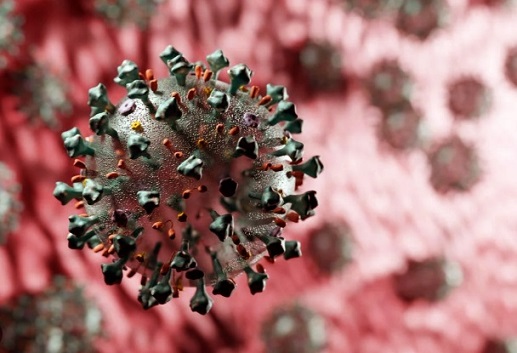University of Louisville Study Finds That Indoxyl Sulfate Causes Immune System Disruption That Leads to Severity in COVID-19
Nikhil Prasad Fact checked by:Thailand Medical News Team Feb 12, 2025 2 months, 1 day, 6 hours, 28 minutes ago
Medical News: Scientists Identify Key Metabolite Linked to Severe COVID-19
A recent study conducted by researchers at the University of Louisville has identified a crucial metabolite, indoxyl sulfate, that plays a significant role in the immune response of COVID-19 patients. The findings reveal that this compound is not only elevated in severely ill patients but also impacts immune cell function, potentially worsening the disease's effects.
 University of Louisville Study Finds That Indoxyl Sulfate Causes Immune System Disruption That
University of Louisville Study Finds That Indoxyl Sulfate Causes Immune System Disruption That
Leads to Severity in COVID-19
This
Medical News report sheds light on how SARS-CoV-2 infection causes major changes in metabolism, with a specific focus on the immune system. While previous studies have examined metabolic changes in COVID-19 patients, this research uniquely highlights indoxyl sulfate’s critical role in disease progression and severity.
What is Indoxyl Sulfate?
Indoxyl sulfate is a metabolite that originates from the breakdown of dietary tryptophan by gut bacteria. Once produced in the intestines, it is absorbed into the bloodstream and processed by the liver before being excreted through the kidneys. While it is a normal byproduct of metabolism, high levels of indoxyl sulfate are often associated with kidney disease, cardiovascular issues, and immune dysfunction. In particular, it is known as a uremic toxin, meaning it can contribute to cellular damage when it accumulates in the body. This study has now linked elevated levels of indoxyl sulfate with immune suppression and inflammation in severe COVID-19 cases.
Indoxyl Sulfate Disrupts Immune Function in Severe COVID-19
Using advanced metabolomics techniques, the study analyzed blood plasma and lung fluid from COVID-19 patients at different stages of severity. The results showed a notable increase in indoxyl sulfate levels in patients with severe illness compared to those with moderate symptoms or healthy individuals. The elevated presence of this compound in both blood and lung samples indicates that it may directly contribute to immune system dysregulation.
Further experiments demonstrated that indoxyl sulfate significantly impacts monocytes, a type of white blood cell responsible for immune defense. The study found that this metabolite triggers the release of TNF-α, a potent inflammatory molecule, while simultaneously weakening the cells' ability to activate other immune responses. This dual effect may contribute to the excessive inflammation and immune exhaustion observed in severe COVID-19 cases.
How Indoxyl Sulfate Affects Immune Cells
The research revealed several concerning effects of indoxyl sulfate on monocytes:
It selectively triggers TNF-α production, an inflammatory signal associated with severe immune responses.
It reduces key co-stimulatory signals (CD80 and CD86), weakening the immune system's ability to fight the virus
effectively.
It increases apoptosis (programmed cell death) in monocytes, which may lead to a compromised immune response.
It negatively correlates with the immune system’s ability to present antigens, a crucial function for activating a proper defense against the virus.
By impairing monocyte function, indoxyl sulfate may contribute to prolonged disease severity and increased risk of complications in patients with severe COVID-19.
Potential for New Treatment Strategies
The identification of indoxyl sulfate as a key player in immune dysfunction offers a potential biomarker for tracking disease progression. More importantly, these findings suggest that targeting this metabolite could be an avenue for future therapies aimed at improving immune function and reducing severe complications in COVID-19 patients.
Researchers believe that further studies are needed to explore how indoxyl sulfate levels could be controlled through medical interventions, dietary changes, or targeted drug therapies. Understanding how SARS-CoV-2 alters metabolism and immune function can help develop more effective treatment strategies for critically ill patients.
The study findings were published in the peer-reviewed journal: Cells.
https://www.mdpi.com/2073-4409/14/4/256
For the latest COVID-19 News, keep on logging to Thailand
Medical News.
Read Also:
https://www.thailandmedical.news/news/covid-19-and-glioblastoma-onset
https://www.thailandmedical.news/news/sars-cov-2-also-targets-the-nervous-system-of-eyes-causing-ocular-neuroinflammation
https://www.thailandmedical.news/news/more-than-50-percent-of-individuals-exposed-to-covid-19-will-develop-antiphospholipid-autoantibodies
https://www.thailandmedical.news/articles/coronavirus
